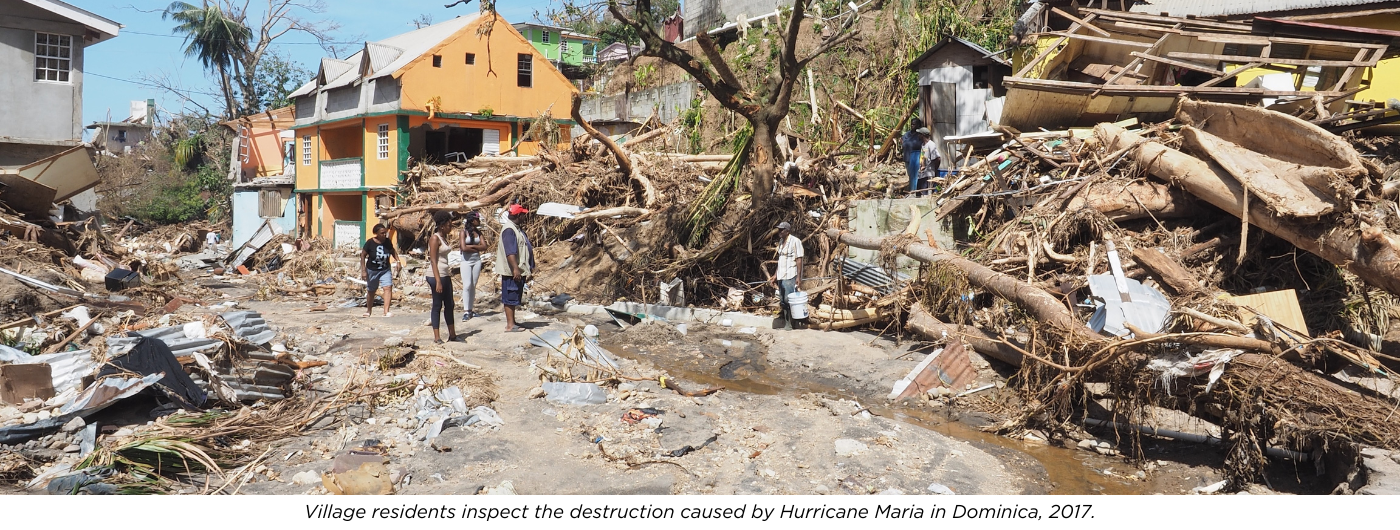The Call for Climate Justice
Climate change is not only an environmental crisis for the Caribbean, it is a matter of justice, law, and survival. Caribbean Small Island Developing States (SIDS) are on the frontlines of a global emergency they did little to cause, yet they bear the most severe economic and human consequences of a warming planet.
A Matter of Legal Obligation, Not Charity
The International Court of Justice's Advisory Opinion(July 2025) affirmed what the Caribbean has always known: providing adequate, predictable, and additional international support for climate action in developing countries is not a matter of charity or aspiration but a matter of justice and legal obligation.
This opinion reinforces the Caribbean's longstanding call for a fair and effective system of global climate finance that compensates for loss and damage and enables adaptation. The CARICOM Declaration on the tenth anniversary of the Paris Agreement reaffirms this demand, urging the world to act with urgency, solidarity, and ambition, guided by science, equity, the polluter-pays principle, and the special circumstances of SIDS.
The Problem in Numbers
- In 2022, US$115.9 billion in climate finance was mobilised for developing countries, but only about 40% went to adaptation, the Caribbean's most urgent need.
- On average, between 2016-2022, SIDS received USD1 billion per year for adaptation however, as much as USD 14 billion is required annually.
- Multilateral funds such as the Green Climate Fund, the Global Environment Facility, Adaptation Fund, and the Fund for Responding to Loss and Damage remain undercapitalised or difficult to access, leaving SIDS trapped in a cycle of disaster, debt, and delayed development.
Two facts are clear: the scale of financing is far below what is needed, and the structure of that financing must be concessional, predictable, and non-debt creating.

What Caribbean Climate Justice Requires
- Tripling global climate finance flows by 2030, with a fair share directed to adaptation and loss and damage for SIDS.
- Full capitalisation of the Fund for Responding to Loss and Damage to enable recovery without deepening debt.
- Adoption of resilience and vulnerability-based allocation criteria for finance to replace GDP as a measure of eligibility.
- Reform of the global financial architecture to expand concessionality, integrate vulnerability, and advance debt sustainability, consistent with the Bridgetown Initiative and the Antigua and Barbuda Agenda for SIDS.
- Expansion of financial tools suited to SIDS such as debt-for-climate swaps, state-contingent debt instruments, concessional small-state finance, microinsurance, and regional risk-sharing mechanisms.
- Simplified access and greater direct participation of Caribbean institutions and governments in decision-making bodies of global climate funds.
- Support for institutional, legal, and technical readiness to quantify loss and damage, manage claims, and operationalise compensation frameworks.
CDB's Role: From Justice to Action
The Caribbean Development Bank, the region's only indigenous development finance institution, is uniquely placed to translate the principle of climate justice into real-world progress. CDB understands Caribbean realities, operates at scale, and is trusted by its member countries to deliver equitable, effective, and sustainable solutions.
To deepen impact and achieve justice in practice, CDB joins CARICOM in calling for:
- Immediate capitalisation of the Fund for Responding to Loss and Damage to make it fully operational and fit for SIDS.
- Expanded direct access to global climate resources and simplified procedures to reduce transaction costs and delays.
- Scaled-up project preparation funding, including through the CDB Climate Change Project Preparation Fund, to turn national plans into bankable projects.
Climate change is more than an environmental challenge, it is also a crisis of justice that threatens the Caribbean's development, sovereignty, and survival. CDB is committed to advancing partnerships and actions that turn commitments into results, reinforcing the collective responsibility needed to achieve meaningful progress.